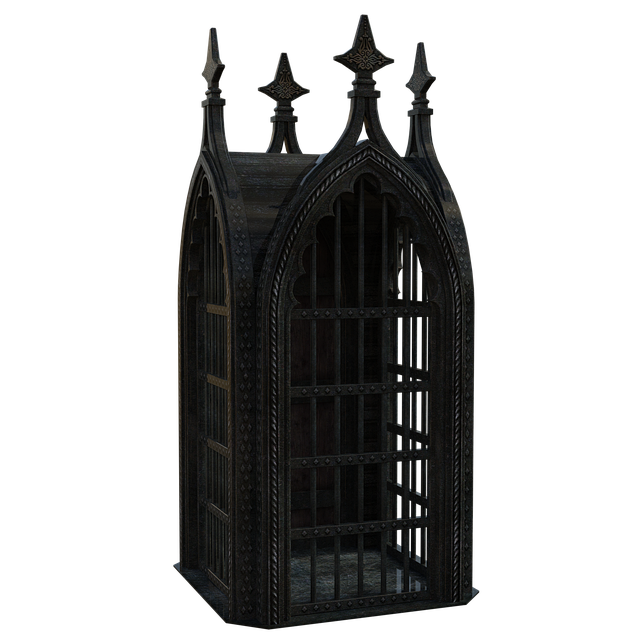Commercial driver DUI cases are distinct due to tailored regulations focused on safety concerns related to commercial vehicles and their operators, with drug interactions playing a critical role. Regular drug testing of commercial drivers means even minor deviations or positive test results can lead to legal consequences. Understanding drug-alcohol interactions, state-specific laws, and stringent regulations is essential for both drivers and legal professionals in this specialized area. Effective defenses center on challenging false positive test results and understanding distinct guidelines on blood alcohol content (BAC) limits and testing procedures. Skilled attorneys specializing in Drug Interaction and DUI Law are vital for protecting drivers' rights and ensuring fair treatment.
“In the realm of commercial driving, a DUI charge isn’t just a personal issue—it presents unique challenges and legal complexities. Understanding Commercial Driver DUI Defense is crucial for those navigating this intricate landscape. This article delves into the distinct aspects, from deciphering drug interaction dynamics that often influence these cases to exploring tailored defense strategies. We examine the specific hurdles commercial drivers face post-arrest and highlight rights and resources available to them. Additionally, real-life case studies demonstrate successful DUI defense tactics within this specialized field.”
- Understanding Commercial Driver DUI Laws: A Unique Perspective
- Drug Interactions: The Hidden Factor in DUI Cases
- Legal Defense Strategies for Commercial Drivers
- Challenges Faced by Commercial Driver Accused of DUI
- Rights and Resources for Commercial Drivers Post-Arrest
- Case Studies: Successful DUI Defense in Commercial Driving
Understanding Commercial Driver DUI Laws: A Unique Perspective

Commercial driver DUI cases present a unique perspective within the realm of DUI law, as these laws are specifically tailored to address the safety concerns related to commercial vehicles and their operators. Unlike standard DUI statutes, commercial driver regulations often consider various factors, including drug interaction and the potential impact on public safety due to impaired driving.
Drug interaction is a critical aspect that sets commercial driver DUI cases apart. Given the nature of their work, commercial drivers may be subject to regular drug testing as part of their employment requirements. Any deviation from expected performance or positive test results can trigger legal consequences, even if the driver’s actions do not directly relate to operating the vehicle while impaired. Understanding these nuanced rules is essential for both drivers and legal professionals navigating this specialized area of DUI law.
Drug Interactions: The Hidden Factor in DUI Cases

In many cases involving Commercial Driver DUI, a critical factor often overlooked is drug interactions. These can significantly impact blood alcohol content (BAC) readings and overall defense strategy. Since commercial drivers are required to undergo regular medical examinations, it’s essential to consider any prescribed medications they may be taking. Even over-the-counter drugs can interact with alcohol, leading to impaired judgment and coordination. Understanding these interactions is crucial in navigating the complex DUI law surrounding commercial drivers.
Law enforcement agencies and prosecutors must account for drug interactions when interpreting BAC results. A thorough review of a driver’s medication regimen can provide valuable context during legal proceedings. This knowledge may help defend against charges, especially if it can be proven that drugs, not alcohol, were primarily responsible for any impairment.
Legal Defense Strategies for Commercial Drivers

When faced with a DUI charge, commercial drivers face unique challenges due to strict regulations and potential consequences. A conviction can lead to license suspension, job loss, and even criminal penalties. Legal defense strategies for these cases often focus on distinguishing factors such as drug interaction and the specific DUI laws governing commercial vehicles.
Understanding Drug Interaction and DUI Law is crucial. Commercial drivers may be taking prescribed medications that could interact with alcohol or other substances, leading to false positive results. Defense attorneys can challenge these tests by presenting medical evidence and expert testimony to show that the driver’s actions were not impaired but rather a result of legitimate drug use. Additionally, knowledge of state-specific laws is essential; commercial driving regulations often have distinct guidelines regarding blood alcohol content (BAC) limits and testing procedures, providing avenues for legal argument and potential case dismissal.
Challenges Faced by Commercial Driver Accused of DUI

Commercial drivers accused of driving under the influence (DUI) face unique challenges due to the strict regulations and potential consequences of such charges. One significant issue is the presence of drug interactions, which can complicate legal defenses. Commercial drivers often take prescribed medications, and these substances may interact with alcohol in unexpected ways, leading to elevated blood alcohol levels that appear to violate DUI laws. Understanding these drug interactions is crucial for building a robust defense strategy under the Drug Interaction and DUI Law framework.
The interplay between prescription drugs and alcohol can result in false positives, where a driver’s blood alcohol concentration (BAC) readings are higher than expected, given their level of intoxication. This scenario demands a meticulous examination of medical records and expert testimony to ascertain the role of drug interactions. A skilled defense attorney adept at navigating these complexities is vital for protecting commercial drivers’ rights and ensuring they receive fair treatment under the law.
Rights and Resources for Commercial Drivers Post-Arrest

After an arrest for DUI, commercial drivers face unique challenges due to their professional status. Unlike private vehicle operators, they have specific rights and resources tailored to their needs. One crucial aspect is understanding drug interaction and DUI laws, as many commercial drivers are prescribed medications that could potentially impact their ability to operate a vehicle. Knowing which substances are prohibited and the specific limits set by Drug Interaction and DUI Law is essential for these drivers.
Post-arrest, commercial drivers should avail themselves of legal resources designed to protect their rights. This includes consulting with attorneys specializing in commercial driver DUI defense who can navigate the complexities of federal and state regulations. These professionals can help clarify drug interaction issues, ensure compliance with testing requirements, and advocate for fair treatment throughout the legal process.
Case Studies: Successful DUI Defense in Commercial Driving

In the realm of commercial driving, a Drug Interaction and DUI Law case study can offer valuable insights into successful defenses. One notable example involves a trucker who was stopped for a routine traffic violation but faced DUI charges due to prescribed medication he was taking for a medical condition. The defense team challenged the officer’s decision-making process, arguing that the medication did not impair the driver’s abilities and that there was no legal basis for a DUI charge under these circumstances. They presented expert testimony from a pharmacologist who explained the drug’s effects and its importance for the driver’s health. This comprehensive approach led to the charges being dropped, showcasing the effectiveness of a well-researched defense strategy.
Another successful case involved a delivery driver who was accused of DUI after a collision. The defense attorney focused on the specific details of the incident, including the presence of other contributing factors like vehicle malfunction and adverse weather conditions. By examining these variables, the defense successfully argued that they played a significant role in the accident, casting doubt on the initial assumption of impairment. This strategy not only resulted in the DUI charges being dismissed but also highlighted the importance of a nuanced understanding of commercial driving dynamics within the context of DUI laws.
Commercial driver DUI cases present unique challenges due to the strict regulations and potential safety implications. Understanding these laws, recognizing drug interactions as a critical factor, and employing tailored defense strategies are essential for protecting the rights of commercial drivers. By reviewing legal options, exploring case studies, and staying informed about drug interaction concerns within DUI law, accused drivers can navigate these complex cases effectively. This comprehensive approach ensures that commercial drivers receive fair treatment while adhering to safety standards.






